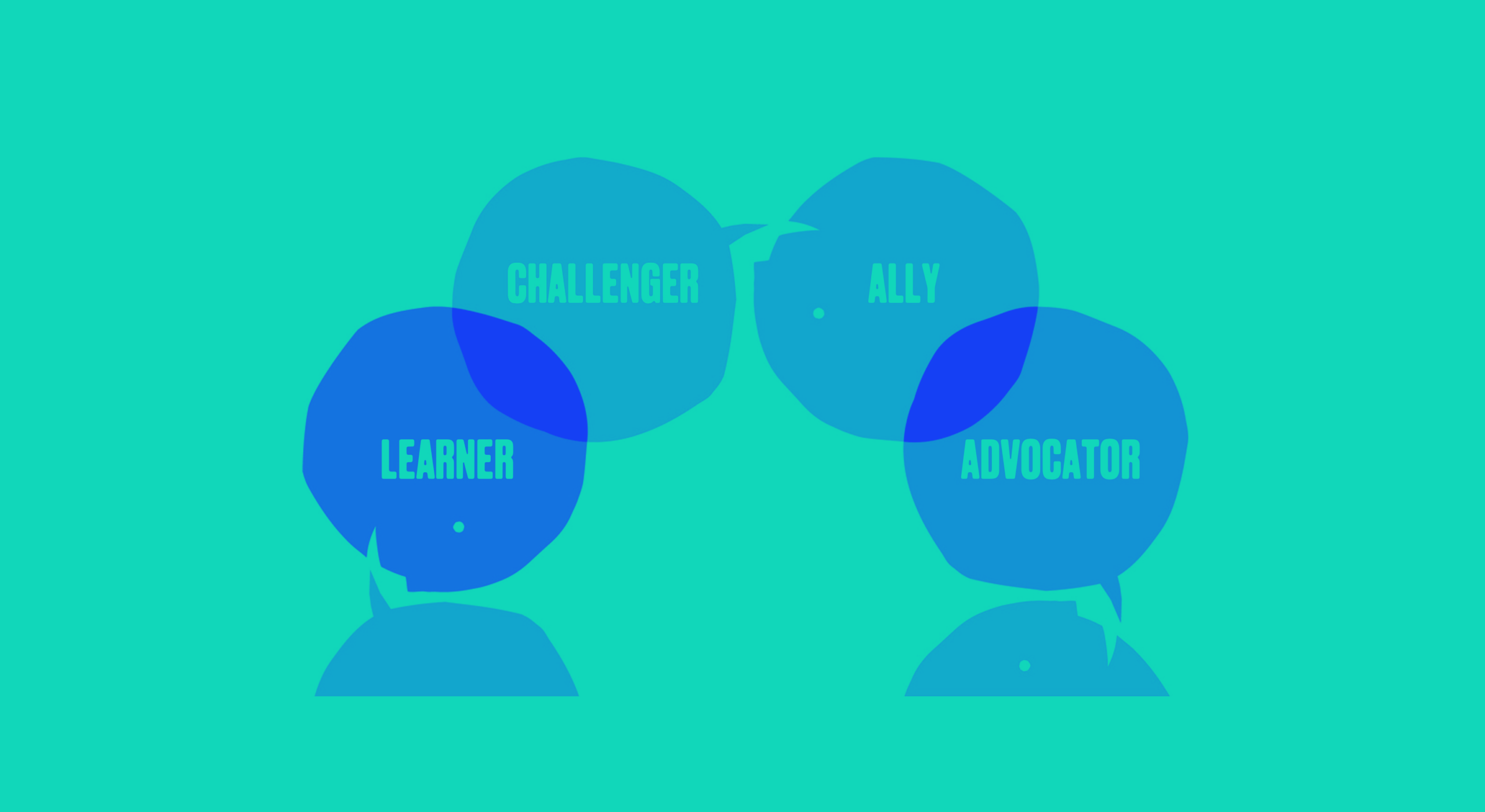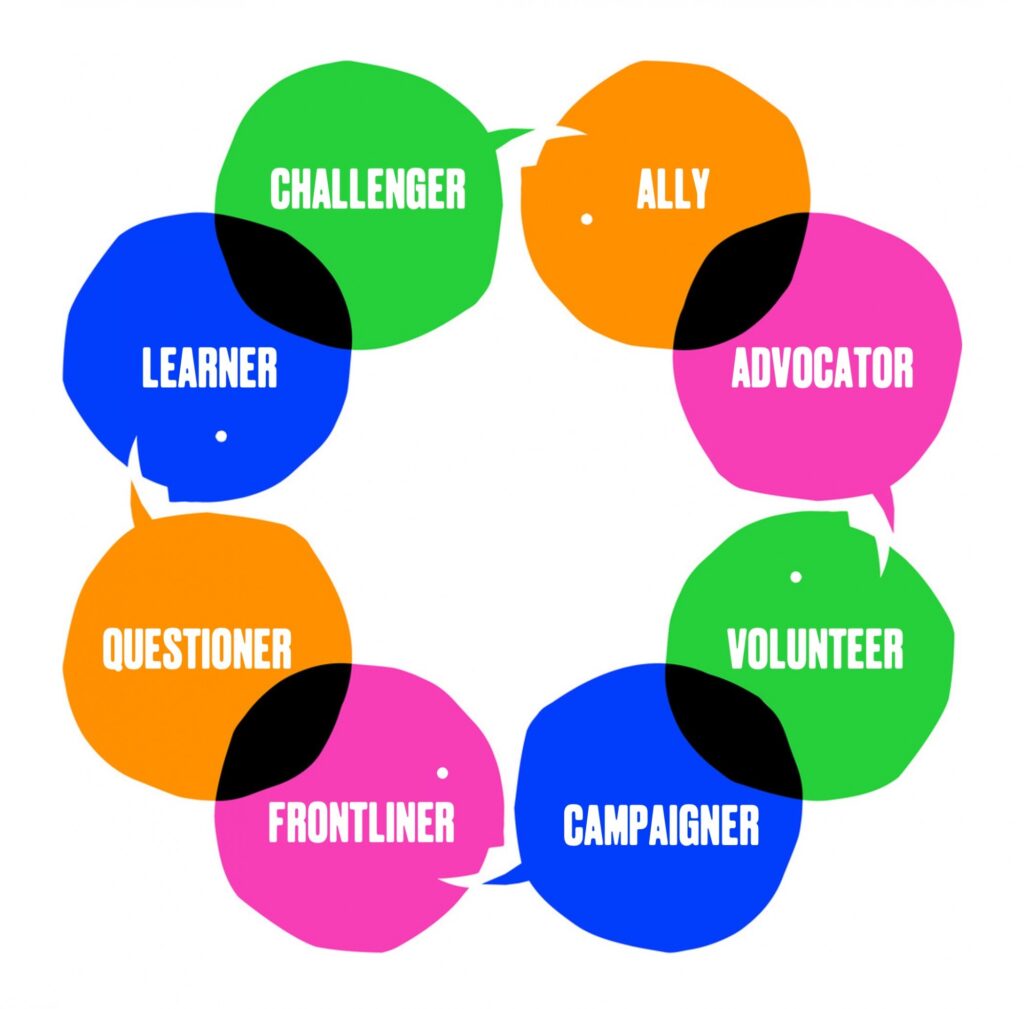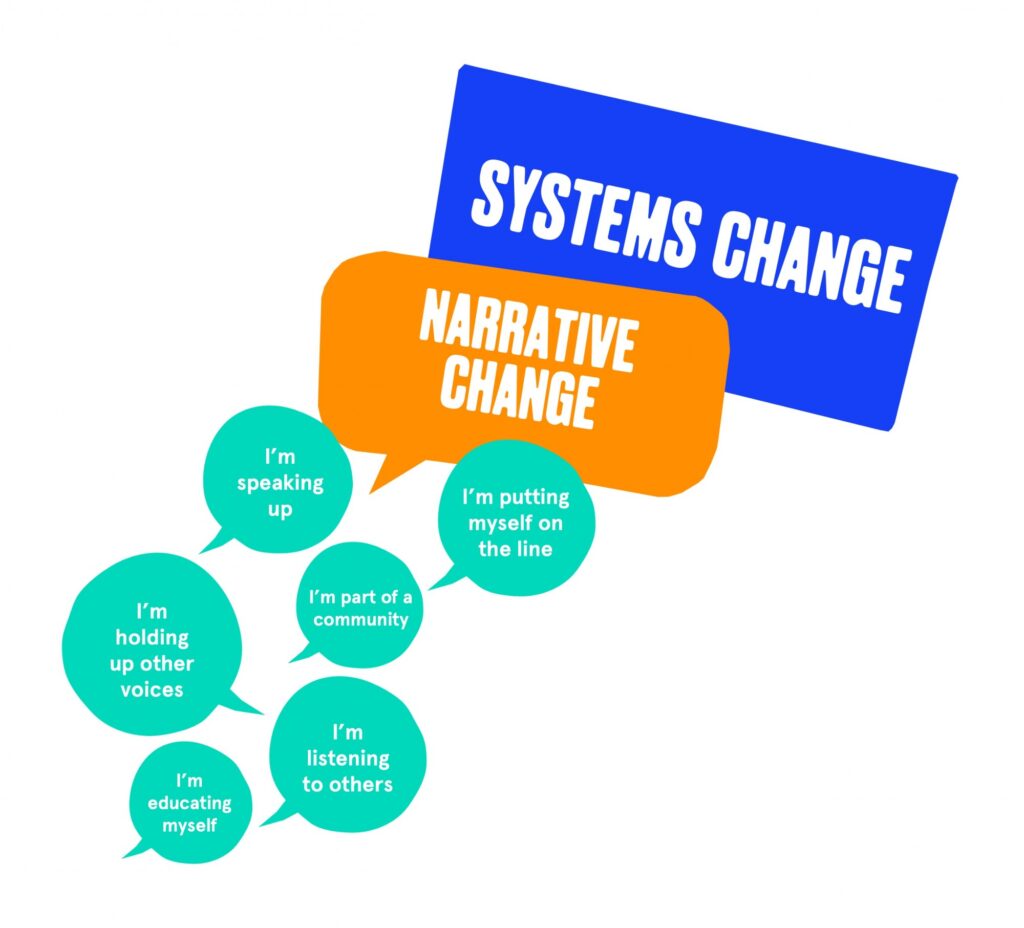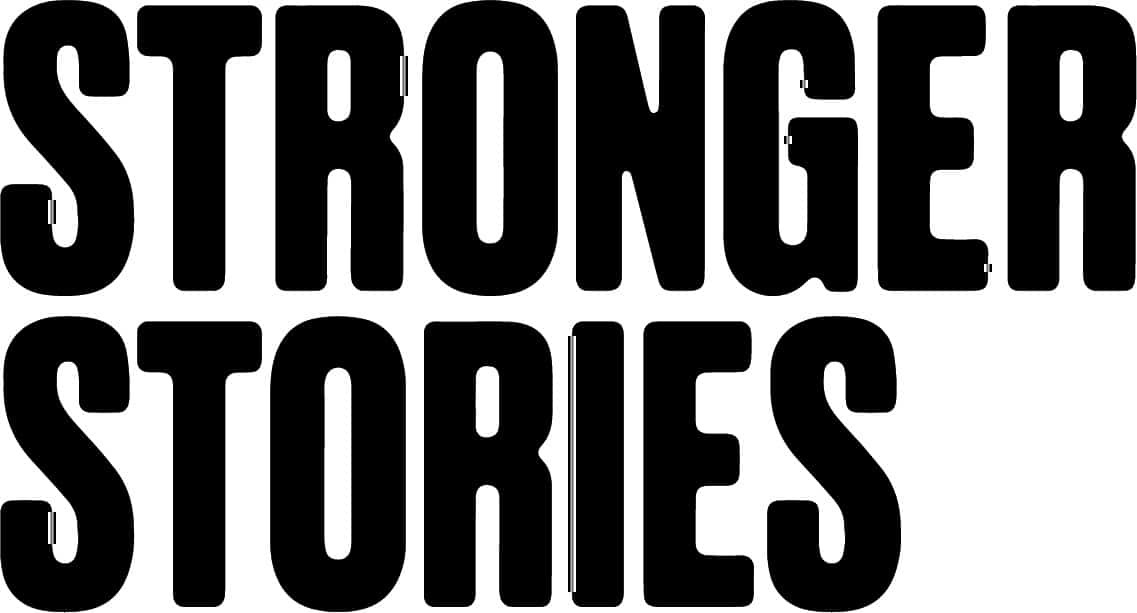
The danger of a single story of ‘the actvist’
- Written by Rosie Ngugi Ngugi
When we think of an activist, we often think of someone who goes to extreme lengths for their cause, both physically and mentally – as to be a ‘true’ activist you must be willing to sacrifice everything for what you believe in…
In reality, these things are a luxury that some cannot afford, and this archetype of an activist risks disengaging those who cannot go to such lengths. Those who martyr themselves for a cause are an essential part, but not the whole.
There is a spectrum of activism, with every part playing a pivotal role. From the kitchen table debater to the local outreach group volunteer, all the way to the law-breaking, boundary pushing rebel.
That’s why we’re exploring what problems arise with telling a single story of activism, and what you could do to recognise this.

Could you be amplifying other voices?
Behind every successful campaign, there are many essential voices whose hard work goes unrecognised.
Whether it’s mainstream news outlets or social media hashtags, if the work does not fit into the ‘glueing themselves to the road’ box of a modern activist it often goes overlooked.
The days, months and years of strategising, informing and mobilising on-the-ground networks is often done without recognition. When it comes to public perception of social issues, there is a gap between those who are seen to push the boundaries and those who rally the masses behind the scenes.
Do you recognise the impact you’re having?
The foundation of social change is always communication.
Yet, it is easy to feel like you are not doing ‘enough’ as an activist. But those who take the time to open up conversations rather than shut them down, no matter how difficult it may be, can mean all the difference when it comes to narrative change.
Activism is made up of moments such as chats over the kitchen table that end in understanding rather than alienation, or the conversations with strangers that end in allyship rather than accusations.
These communicators are vital as they are able to relate to others, create a shared understanding and mobilise their circles.
Could you be alienating others?
One size does not fit all.
Some people may be just as passionate, but the tactics offered to them such as causing disruption and getting arrested, are inaccessible and they therefore cannot engage.
People of colour, people with disabilities, migrants and working-class folk risk suffering severe consequences to any acts of defiance, which means we have one ‘type’ of activist that is often represented.
This leaves many feeling as this might not be their ‘space’ and that they have little to contribute despite their commitment.
But, without mass participation those efforts die in vain.
So, what does this mean?
As activists we need to recognise that there is a whole spectrum of activism, with everyone playing a unique part in spearheading change.

We all have different roles to play, abilities to participate, and stories to tell.
In order to have a successful and representative social movement we need to start to retell the story of ‘the activist’.
Share:
Grow Your Good Idea Faster
New ideas are precious. Win support by learning how to create and tell a stronger story – sign up to join for free.

Related posts
How to move from Villain to Hero
Stories of rebirth and redemption are something most of us are very familiar with; the most obvious example being...
How self-love shifted mental health narratives in sport
We’re all working hard to tell better stories about change. Sometimes the best story is not the one that fits...
What heroes and villains across cultures can teach us
From caped crimefighters to the megalomaniac mastermind, societies around the world have always used storytelling to...
Learn from the strongest stories about change
Sign up here to receive our monthly newsletter that explores great storytelling about brilliant ideas. Don’t worry you can unsubscribe at any time.
We’re working hard to walk the talk.
We’re proud to be have been awarded The Blueprint and B Corp status in recognition of our work towards creating a better world.

